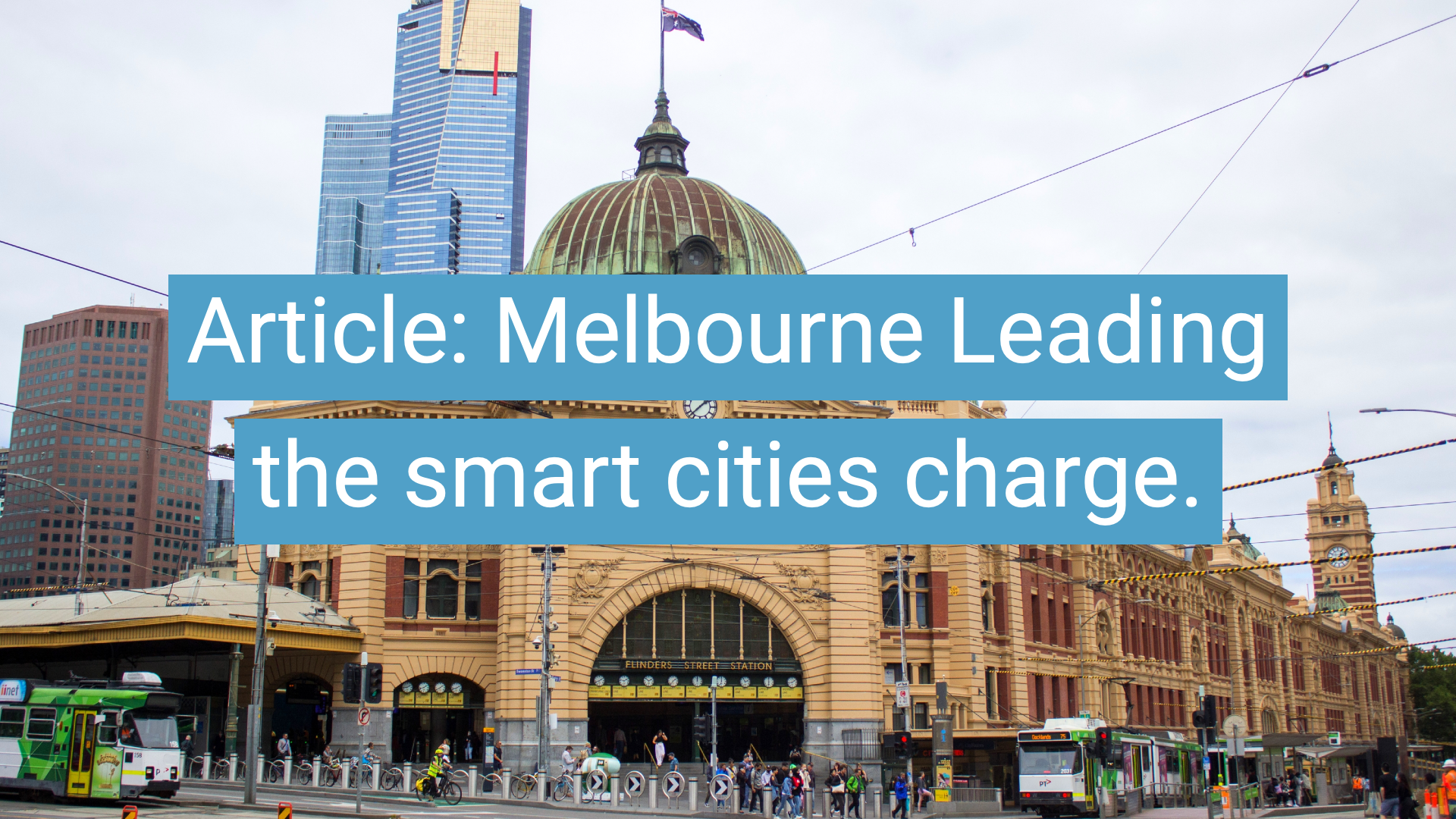In this Article
Melbourne is leading the charge for smart cities across Australia. This places Melbourne as the highest placed Australian city in the global smart rankings. Michelle Fitzgerald, Chief Digital Officer from the City of Melbourne recently spoke to Hamish Fitzsimmons on ABC’s Lateline program about how she is using data to shape the future of the Smart City Melbourne.
Of interest is where the simplicity of several of the smart technology that have been employed and the use of the data they produce.
Transcript from ABC Lateline 20/03/2017: http://www.abc.net.au/lateline/content/2016/s4639431.htm
MICHELLE FITZGERALD, CHIEF DIGITAL OFFICER, CITY OF MELBOURNE: What makes a smart city from Melbourne’s perspective is a city that is sustainable, prosperous and liveable, and a city that puts its people first. Smart talks about technology. For us technology and digital data are the enablers to make Melbourne a smart city.
Typical definition does start with technology, digital and data. For Melbourne we start with, “Who are the people coming to the city every single day to work, to live, to play and to learn?”
Our Melburnians are business owners, they’re workers, they’re students, they’re residents – they’re visitors to the city. And when we speak to them about the problems they think we should be solving through smart city is about looking at congestion times, for example, and safety when people are not just taking public transport to work, but are cycling and walking in the city.
We have an open data platform for Melbourne, as do other layers of government, and anyone can get online and have a look at the stats for Melbourne. You can have a look at how many people come into the city on a typical workday. You can have a look at the census of land use and employment in the city. You can have a look at the development activity in the city and use those data points to help inform decisions and create solutions for Melburnians.
We have smart bins, for example, that have sensors that tell the trucks when to come and collect them. We have an LED street light program that produces less emissions than a typical street light. We have real-time parking sensors coming which are important, ’cause they help keeping parking spots moved to help our local businesses generate more parking.
The experts suggest that up to 40 per cent of jobs in main cities around the world are at risk of automation Not just Melbourne, but everywhere. So, we need to be on the front foot of creating those jobs and positions of the future around unlocking the IP that sits in our universities and bringing together the universities, the start-ups, the students, the non-profits, the policy groups and government to create a future-proof city.
So, the feedback we hear from others locally and globally is that Melbourne’s certainly punching above its weight in terms of the definition of a smart city. And the evidence is there, year on year, Melbourne continues to lead as a capital city in Australia in terms of employment growth, in terms of business growth, gross local product and our population. So, the stats suggest that we’re doing all the right things.
It is clear that Melbourne’s smart city initiatives are having a positive impact on the economic, social and environmental development of the city. By leveraging technology, digital data and open data platforms, they have been able to improve congestion times, safety for pedestrians and cyclists as well as create new jobs in the area.
Furthermore, their efforts have helped them become one of Australia’s leading cities in terms of job creation, business growth and population size. These examples serve to demonstrate how powerful smart technology can be when it comes to improving urban life. With this understanding in mind we should strive towards building smarter cities around the world with innovative solutions tailored specifically for each local context.
To learn more about using AlphaX to manage city services: Click Here.
Related Blog Posts
How Smart Cities Connect: Getting Started with Edge AI and IoT Technology
How to Get Started with Edge AI and IoT Technologies in Smart Cities: Overcoming Integration Challenges In recent years, the concept of smart cities has evolved from a futuristic Read More
5 Step Strategy: Ensuring Security and Privacy in 15-Minute Smart Cities
Introduction Ensuring security and privacy in 15-minute smart cities is a critical challenge as urban areas become increasingly connected through IoT and edge AI technologies. These cities aim to Read More
What is a smart city and the challenge of legacy systems
How to Get Started with Integrating Legacy Systems in Smart Cities Smart cities are transforming urban landscapes by leveraging technology to improve the quality of life for residents. However, Read More




